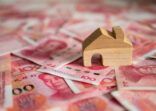Beijing’s sweeping new measures to prop up the ailing property sector may provide some respite for both the equity and fixed income markets, although the details are too vague at the moment to predict a full recovery.
That was the consensus at least of market observers whose opinions FSA canvassed following the introduction by the central bank and the banking regulator of their 16 measures to support the embattled sector.
“The additional housing market stabilisation measures are perceived as credit positive and could be a game changer for the China property bonds market,” said Josephine Tom, fixed income adviser at Indosuez Wealth Management.
“With the long-anticipated reopening for China, gradually this could be a soft landing given the short-term liquidity that is now available for stressed private developers. However, it is too early to see if such intent can be implemented as specific details are lacking.”
China’s property sector has undergone a deep liquidity squeeze since mid-2020, which has led to developers defaulting in the offshore bond market and property sales falling precipitously.
According to data compiled by consultancy firm China Real Estate Information Corp, the cumulative contracted sales for the 100 largest developers during the first 10 months of the year stood at Rmb556bn ($76.7bn), down 28.4% year-over-year.
The People’s Bank of China and the China Banking and Insurance Regulatory Commission subsequently issued a joint notice to financial institutions, which was first reported by the media last weekend, outlining 16 easing measures.
The measures include allowing developers’ outstanding bank loans and trust borrowings due within the next six months to be extended for a year and directing policy banks China Development Bank and the National Bank for Agriculture and Rural Development to offer special loans to ensure property projects are delivered among other things.
Property developer Country Garden rallied 46% on Monday to hit a three-month high, while Logan Group, KWG Group, Agile Group and R&F Properties all rose more than 30% in response to the news.
Several market observers said that more details would be needed before being able to predict the impact of the 16 measures though.
“The government’s recent actions to step up support for developers’ funding could improve the companies’ financial flexibility and partly temper their near-term refinancing pressures,” said Kelly Chen, vice president and senior analyst at Moody’s.
“But the impact would be subject to the extent and timing as well as the effectiveness of these measures.”
Scotland-headquartered asset manager abrdn, meanwhile, was more forthright and said that the 16 measures were insufficient to bring the sector out of the current crisis and more easing policies are needed.
“The support will likely gear towards the developers who are still current on debt payments thus creating more credit differentiation among developers,” said Joyce Bing, fixed income investment manager for Asia at abrdn.
“For the distressed names, we think the 16 measures have limited direct impact on them. That said, this may give defaulted developers more incentives to strike a deal with bondholders more quickly, so that they can benefit from some of these supportive policies.”
Overall, market observers said that the announcement would help risk assets.
“The 16-point set of property support measure directive clearly is a hopeful sign for China’s economy, and, coupled with the Covid-19 easing measures, could well support a further rebound in both the equity and high yield fixed interest markets,” said Martin Hennecke, head of Asia investment advisory at St James’s Place.
These views were echoed by HSBC Asset Management’s head of Asian fixed income, Elizabeth Allen.
“We see the supportive measures as a positive move to address the on-going liquidity and funding challenges faced by the Chinese property developers. They help to set a floor on the Chinese HY [high yield] and Asia HY sectors,” said Allen.
Some observers expressed concerns however about the impact the measures could have on China’s banking sector.
“These measures show the authorities’ increasing resolve to stabilise the property sector and contain spill-over risk. However, they could increase the banking sector’s overall property exposure and weaken asset quality in the medium term if the measures fail to sustain property valuations,” said Elaine Xu, director for financial institutions at Fitch.
“If implemented successfully, the banks’ increased support for the industry could reduce the asset risks from their existing property exposure. However, greater exposure to the sector could lead to a larger deterioration in asset quality and profitability if there is no recovery for a prolonged period.”
May Yan, managing director and head of Greater China financials equity research at UBS. believes the property sector downturn will cost the banking system up to Rmb1.4trn-Rmb1.5trn in the next few years, mainly from potential losses in banks’ unsecured property development loans, bonds and non-standard assets.
“We believe such loss is digestible by the banking system as the banks have strong earnings power and high non-performing asset reserves on their balance sheets. As such, we don’t expect any banking system crisis at this point,” Yan said.
















